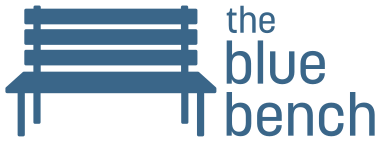Hope and Healing: Resources for Native American Communities
Sexual violence affects all genders and demographics, but Native women are disproportionately affected. 56% of Native women will experience sexual violence in their lifetimes, and they already have limited access and face barriers to resources like support services, medical care, and trauma healing. Because sexual violence against Native women is deeply entrenched in colonialism, the political and cultural systems in North America perpetuate and accommodate sexual violence, including federal laws designed to strip indigenous women of their rights for legal justice.
Fortunately, there are amazing Native-led resources available for Native survivors to use and foster the healing process. Below are some national and local resources:
StrongHearts Native Helpline
strongheartshelpline.org
1-844-7NATIVE (762-8483)
This helpline is a 24/7 confidential, anonymous line for American Indian and Alaska Natives needing culturally appropriate support and advocacy for domestic, dating, and sexual violence.
National Indigenous Women’s Resource Center
niwrc.org
This organization is a Native-led nonprofit dedicated to ending violence against Native women. They work as an advocacy group lifting up grassroots organizations and providing national leadership to tribal coalitions around the country, as well as lobbying for local and federal protections for indigenous people. Their mission involves reclaiming their pre-colonialist values, and put protecting and advocating for women and children as a top priority.
Native American Rights Fund
narf.org
This organization was created in the 1970s to provide legal assistance and representation to indigenous tribes, organizations, and individuals who may not have access to proper representation. This group has defended the rights for indigenous people in hundreds of major cases. This group is headquartered in Boulder, Colorado, with offices and resources around the country.
Haseya Advocate Program
haseya.org
Located in Colorado Springs, Colorado, Haseya is a Native women-led organization that provides support and advocacy for survivors of domestic abuse and sexual violence. The main goal at Haseya is to promote healing and balance for survivors and create a safe healthy community. Some of the things Haseya can assist with is safety planning, education, one-on-one support, support groups, and assistance in finding financial, legal, and housing options. A new program developed at Haseya is their gardening program called the Haseya Indigenous Healing Garden, where indigenous women who’ve experienced sexual violence can come together and connect with one another, garden, and use traditional ways of healing. Learn more about their community garden program here.
Denver Indian Center
denverindiancenter.org
This organization is dedicated to serving tribes in the Denver metro area. Their mission is to empower youth, families, and communities through cultural identity, self-determination and reliance, and education. Some of the services offered here are client advocacy, translation services, education, housing referrals, legal referrals, employment assistance, and food bank services.
Denver Indian Family Resource Center
difrc.org
Denver Indian Family Resource Center is an organization in the Denver metro area that assists families involved in the child welfare system. In the welfare system, they identified that culturally-responsive systems were critically unmet services. They provide advocacy for children and families currently in the welfare system, and assist families in ways to avoid being in the system. DIFRC provides comprehensive, collaborative, community based programming for indigenous children and families.
The Blue Bench is also always here to support Native survivors. We have a 24/7 hotline (303-322-7273 English, and 303-329-0031 Spanish) as well as support services for survivors and secondary-survivors.
